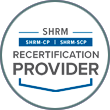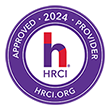Coronavirus in the Workplace: Employers’ Duty to Protect Employees
COVID-19 continues to be a real concern for public and occupational health.
Even as businesses are allowed to resume operations, employers have serious concerns about their obligations to protect employees, especially in the face of shifting guidance from OSHA, the CDC, EEOC, and state governments. Also, employers have questions on the new information now available on steps they should, and are required, to take to address disease prevention in the workplace - depending on their risk assessment and industrial sector.
OSHA can impose penalties via the “General Duty Clause” and has other tools in its arsenal for enforcement against employers who fail to honor their obligations, and citations can reach $134,937 per affected worker.
What are the current requirements, and what do the standards mean for employers and their liability?
Join us to learn what’s required now, and how you can best protect your workers. In this 60-minute program you’ll learn:
- How to comply with OSHA's newly enhanced enforcement and reporting requirements
- The coronavirus and other infectious diseases putting employees at risk today
- How Congress is responding to OSHA enforcement changes and pushing for a new infectious disease rule
- Ways employers can adopt best practices for worker health screening, controls and PPE to protect employees, reduce risks and stay compliant
- What constitutes protected work refusal by employees concerned about returning to the workplace, and how OSHA is managing whistleblower and hazard complaint investigations related to COVID-19
- How OSHA policies and COVID-19 impact EEOC policy related to the ADA
Program Highlights
OSHA's Requirements for Protecting Against Infectious Diseases
- How concerned should employers be about the coronavirus?
- Which diseases pose the greatest, and likeliest, threat to employees
- Guidelines for disease control and prevention requirements
- OSHA standards covering exposure to infectious diseases
Disease Prevention & Control Best Practices for Employers
- Keys to identifying infectious diseases and how they're transmitted
- Specific infection control guidelines for your workplace
- Training requirements for giving medical aid and treatment
- Reporting requirements once an employee has been infected
Employer Responsibility for Employee Protection: What You Need to Know
- Protection given to infected employees against discipline and retaliation
- Understanding workers' rights and employers' liability
- Job duties and workplaces covered under OSHA standards
About the Speaker
Adele L. Abrams, Esq., CSMP is a nationally recognized authority on Occupational Safety and Health law. She represents employers in OSHA and MSHA litigation and provides training and safety consultation.
- Abrams is a frequent author on safety, health and legal compliance issues, including writing columns in multiple magazines, and co-authoring several books including the widely reviewed "Construction Safety Management and Engineering" and the ASSP's "Safety Professional's Handbook."
- Abrams is a regular presenter at prestigious safety conferences like the American Society of Safety Professionals (ASSP), where she specializes in providing real-world solutions to real-world problems
Program Benefits
With infectious diseases such as the Coronavirus still on the rise, and as domestic travel resumes for business, the risk of exposure is at an all-time high. When disease comes into the workplace, it is the employer's responsibility to identify the hazard, and take immediate action to protect employees. In this 60-minute program you will learn what OSHA requires from employers, and steps you can take to protect workers.
If you'd like this program customized for your organization, call us at 1-800-964-6033.
We're certain we can fulfill your training needs, while making it fit in your budget!
SHRM Credits

Premier Learning Solutions is recognized by SHRM to offer Professional Development Credits (PDCs) for the SHRM-CP® or SHRM-SCP®. This program is valid for 1 PDCs for the SHRM-CP® or SHRM-SCP®. For more information about certification or recertification, please visit www.shrmcertification.org.
HRCI Credits

This program has been approved for 1 (HR (General)) recertification credit hour toward aPHRTM, aPHRiTM, PHR®, PHRca®, SPHR®, GPHR®, PHRiTM and SPHRiTM recertification through the HR Certification Institute. Learn more at hrci.org
BCSP Points

For this one hour program you may claim 0.05 continuance of certification points (COC's) from the Board of Certified Safety Professionals (BCSP).
Please submit a request to obtain proof of your participation and a certificate of attendance will be emailed within 2-3 days.
Purchase this On-Demand Workshop
Coronavirus in the Workplace: Employers’ Duty to Protect Employees
$199 + applicable taxes
You will receive access to the live event(s) which includes a copy of the speaker's presentation, real-time training with our expert instructor, and an interactive question & answer period. Two to three business days after each live training concludes, an email is sent to registrants which contains a link for unlimited access to the on-demand recording you can revisit & review.
You'll receive a link to access the recording(s) in your order confirmation email. On-demand recordings also include a copy of the speaker's presentation and the ability to submit your questions to the expert, for up to 7 days after viewing.
$499 + applicable taxes
You will receive access to the live event(s) which includes a copy of the speaker's presentation, real-time training with our expert instructor, and an interactive question & answer period. Two to three business days after each live training concludes, an email is sent to registrants which contains a link for unlimited access to the on-demand recording you can revisit & review.
You'll receive access to our full library of on-demand trainings along with the speaker's presentation and handouts for each event.
$899 + applicable taxes
You will receive access to the live event(s) which includes a copy of the speaker's presentation, real-time training with our expert instructor, and an interactive question & answer period. Two to three business days after each live training concludes, an email is sent to registrants which contains a link for unlimited access to the on-demand recording you can revisit & review.
You'll receive access to our full library of on-demand trainings along with the speaker's presentation and handouts for each event.
Guaranteed to be Good
All training experiences include a 7-day 100% money-back guarantee.
Full-Team Pass
Simply share the invite link with your team so you can learn and grow together!
Yours Forever
The event recording and materials are yours to rewatch and share as you choose.


